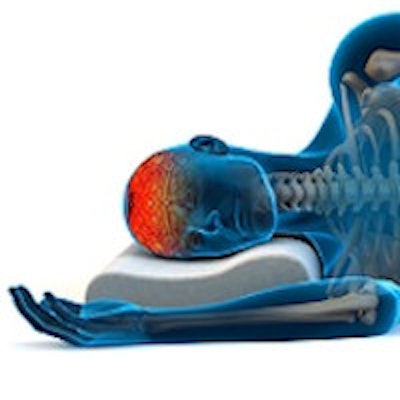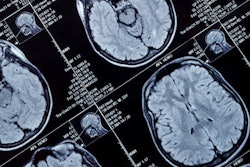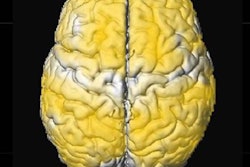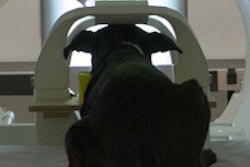
Research conducted using dynamic contrast MRI has found sleeping on one's side more effectively removes brain waste, thus reducing the risk of developing Alzheimer's, Parkinson's, and other neurological diseases, according to an animal study published this month in the Journal of Neuroscience.
Because the brain is highly metabolically active, it produces waste that needs to be disposed of, wrote lead author Hedok Lee, PhD, of Stony Brook University, and colleagues. It does this through a clearance mechanism called the glymphatic transport system, which is most efficient during sleep.
Lee's group examined anesthetized rats and mice in the lateral, supine, and prone sleep positions, using dynamic contrast-enhanced MR to identify the glymphatic pathway -- through which cerebrospinal fluid filters through the brain and mingles with interstitial fluid to clear waste, much as the lymphatic system cleanses organs. Brain waste consists of beta-amyloid and tau proteins, according to the team. To confirm the MR results, Lee and colleagues then conducted follow-up tests using fluorescence microscopy and radioactive tracers (J Neurosci, August 5, 2015, Vol. 35:31, pp. 11034-11044).
The lateral, or side-lying, posture proved most effective. Luckily, it is also the most common sleep position among mammals, according to the team.
"One of the most intriguing findings of our study was that glymphatic transport was most efficient in the recumbent, lateral position, which closely mimics the natural resting/sleeping position of rats," the group wrote. "In humans, studies have documented that body posture during sleep favors the lateral position."
One possible reason that side sleeping is more effective than the supine or prone positions is that the heart is higher when an animal lies on its right side, which may make cardiac stroke volume more efficient and waste removal more effective, Lee's group wrote.
Of course, there are anatomical, physiological, and overall body dimension differences between humans and rats, and these results should be further tested in people, according to the researchers. But in any case, the study supports the idea that sleep serves a distinct biological function: to clean up the mess that accumulates during waking hours, co-author Dr. Maiken Nedergaard said in a statement released by Stony Brook.
"Many types of dementia are linked to sleep disturbances, including difficulties in falling asleep," she said. "It is increasingly acknowledged that these sleep disturbances may accelerate memory loss in Alzheimer's disease. Our finding brings new insight into this topic by showing it is also important what position you sleep in."





















